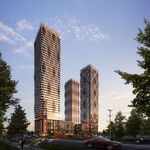W. K. Lis
Superstar
From the Saturday Star:
Another Mike Harris legacy hits us. Other legacies: music programs, industrial arts, and home economics classes.
Maybe we should drop school buses and use that money for those programs. Children used to walk to school in the city of Toronto, when I went to school. But now you can't walk the 4 blocks because it's too far?
Apr 05, 2008 04:30 AM
Jim Byers
city hall bureau
Pupils and others who use two dozen Toronto District School Board pools will be out of luck come June.
The board yesterday said 23 indoor pools will be drained at the end of the school year because there's no funding to keep them open. Sixteen more will close a year later, officials said, for a total of 39 of the board's 84 pools.
"This board has very serious financial challenges," chair John Campbell said yesterday. "In my view, this is a necessary step."
A board statement said pools used for community and special education programs will stay open.
The board voted last June to begin closing pools Feb. 1 unless the province came through with funding. That hasn't happened.
Massive pool closings threatened in the past haven't come to pass. But Campbell said he's not playing political games.
"If this were a power play I'd be going to Queen's Park with a cup in my hand," he said.
The board's projected savings are $4 million a year.
- With files from Vanessa Lu
Another Mike Harris legacy hits us. Other legacies: music programs, industrial arts, and home economics classes.
Maybe we should drop school buses and use that money for those programs. Children used to walk to school in the city of Toronto, when I went to school. But now you can't walk the 4 blocks because it's too far?




